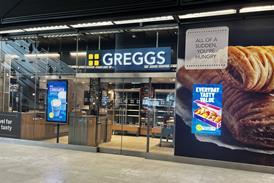British Sandwich & Food to Go Association director Jim Winship on proposed changes to salary thresholds for migrant workers – and how they may not go far enough
Retailers, manufacturers and foodservice operators face potentially serious labour shortages if the latest report from the Migration Advisory Committee (MAC) is implemented by government and the door is closed to temporary permits for EU workers.
The MAC has suggested reducing the threshold for medium-skilled workers coming to the UK with job offers, from £30,000 to £25,600 – still well above pay levels for many working in the food industry. A chef’s average pay is currently £20,362, for example.
It has also recommended that categories such as waiters and waitresses be removed from the medium-skilled designation, despite acknowledging that this will negatively impact the sector.
Those without pre-arranged jobs, it says, should be put on a points register where they would compete with highly skilled workers for limited places.
There is also a proposal that those in higher-paid jobs should be expected to meet an additional threshold of 25% of the mean salary for their occupation. So, there is a concern about immigrants undermining salary structures and this fits with the general view in parliament that salary inflation is not a bad thing.
With Downing Street expected to lean heavily on the MAC recommendations in drafting the Immigration Bill, the scope for businesses to engage with government over this is limited. Some MPs might be sympathetic to the economic arguments, but few appear willing to argue them publicly, as immigration is seen to be difficult politically.
Although our association, and others, will be stressing the economic consequences of labour shortages, particularly in foodservice and food manufacturing, businesses need to prepare for a further tightening of the labour market when we leave the EU at the end of 2020.
Labour shortages are likely to be felt most in major cities and in areas with a high proportion of manufacturing. Solutions will need to be found by developing new ways of working, from automation to reorganising shift patterns to suit parents with young children, or encouraging consumers to click-and-collect to reduce staff pressures at key times of day.
Wage inflation is also likely to be a factor, particularly given the growth in the gig economy, which can be exacerbated at key times of the year such as Christmas.
The food and drink industry has been adept at surviving such situations in the past, and we’ll do so again, but it will be challenging.


























No comments yet